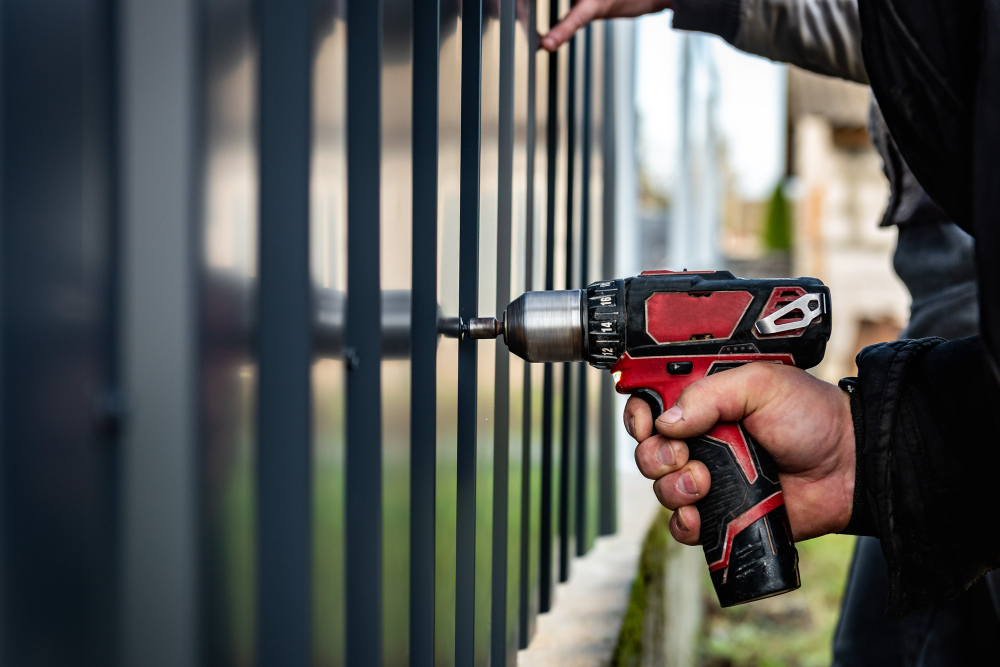Understanding Florida Fence Laws & Regulations

Installing or repairing a fence in Florida isn't as simple as picking out a design and getting to work. The Sunshine State has specific regulations that homeowners and contractors must adhere to. Whether you're installing a new fence or need fence repair in Jacksonville, FL, understanding these laws can save time, money, and potential legal headaches. This comprehensive guide will walk you through the essential Florida fence laws and regulations, ensuring your fencing project complies with local and state requirements.
Why Understanding Fence Laws is Crucial
Before breaking ground on your fence project, it's crucial to understand the regulations that govern fencing in your area. Non-compliance can lead to fines, forced removal of your fence, and potential disputes with neighbors. By familiarizing yourself with these laws, you ensure your investment in a fence is protected and your property is enhanced without legal complications.
Florida Fence Laws Overview
Florida's fence laws encompass a range of regulations, from height restrictions to material standards and boundary placements. Some laws are statewide, while others vary by county or city. Jacksonville, for example, has specific codes due to its unique environmental considerations, including hurricane preparedness.
Common Statewide Regulations
- Height Restrictions
- Residential fences are typically limited to six feet in height in backyards and four feet in front yards. However, exceptions can be made for privacy fences or when additional security is required.
- Material Standards
- Florida mandates certain materials for durability and safety. For instance, wood fences must be treated for rot and pest resistance.
- Boundary and Property Lines
- Fences must be installed within your property lines. It's advisable to have a surveyor confirm your boundary lines to avoid disputes.
- Pool Fencing
- Specific laws require pool areas to be fenced for safety. These fences must be at least four feet high with self-closing, self-latching gates.
Jacksonville-Specific Regulations
In Jacksonville, specific ordinances apply that may differ from broader Florida laws. Always check local regulations and HOA rules before commencing a fencing project.
- Wind Resistance
- Given Jacksonville's susceptibility to hurricanes, fences must be constructed to withstand strong winds. The city requires specific standards for wind load capacity.
- Aesthetic Considerations
- Some Jacksonville neighborhoods have aesthetic guidelines to ensure that fences blend with the community's character.
- Permitting
- A permit is often required for fence installations. This ensures that your plans comply with local zoning laws and safety standards.
Steps to Ensure Compliance
1. Research Local Regulations
Start by researching local ordinances and HOA guidelines. Websites for the city of Jacksonville and your neighborhood association are good starting points.
2. Obtain Necessary Permits
Before installing or repairing a fence, check if a permit is required. This process may involve submitting plans and specifications for approval.
3. Choose Compliant Materials
Select materials that comply with Florida's and Jacksonville's specific regulations. Consult with a contractor if you're unsure which materials meet the standards.
4. Get a Survey
Enlist a professional to survey your property lines. This ensures your fence is placed correctly and helps prevent future disputes with neighbors.
5. Hire a Professional
Consider hiring a professional fencing company familiar with local laws. Masters Quality Fence in Jacksonville offers expert services and guarantees compliance with all regulations.
Benefits of Complying with Fence Laws
Avoid Legal Issues
Compliance prevents legal disputes with neighbors or local authorities, saving you stress and additional costs.
Enhance Property Value
A well-installed, compliant fence can enhance your property's curb appeal and value, attracting potential buyers if you decide to sell.
Ensure Safety
Following regulations ensures that your fence serves its primary function, whether it's privacy, security, or safety (such as pool enclosures).
Why Choose Masters Quality Fence?
When it comes to fence repair in Jacksonville, FL, Masters Quality Fence stands out for its commitment to quality and compliance. Here's why you should consider them for your fencing needs:
- Expert Knowledge
With years of experience, they understand the intricacies of Florida's fence laws and Jacksonville's specific requirements.
- Quality Craftsmanship
Masters Quality Fence uses top-grade materials and skilled labor to ensure your fence is durable and aesthetically pleasing.
- Free Quotes
They offer free quotes and consultations, helping you plan your fencing project efficiently and affordably.
- Customer Satisfaction
Known for excellent customer service, they prioritize your satisfaction and work closely with you to meet your needs.
Conclusion
Navigating Florida's fence laws and regulations can be complex, but it's crucial for a successful fencing project. By understanding these laws, obtaining the necessary permits, and working with experienced professionals like Masters Quality Fence, you can ensure your fence is both compliant and beautiful.
If you need help with fence installation and fence repair in Jacksonville, FL, contact Masters Quality Fence today to get your free quote. Your dream fence is just a call away!